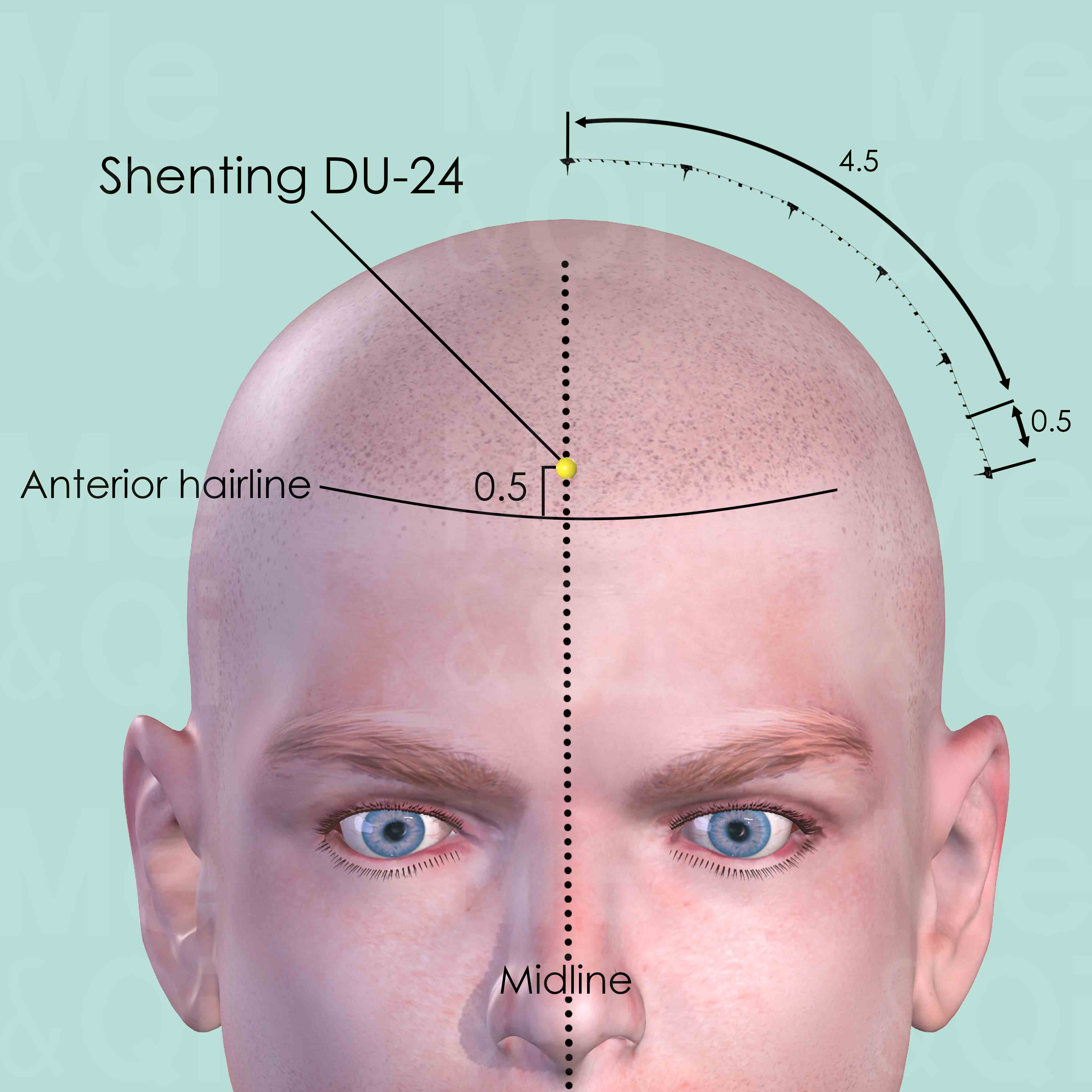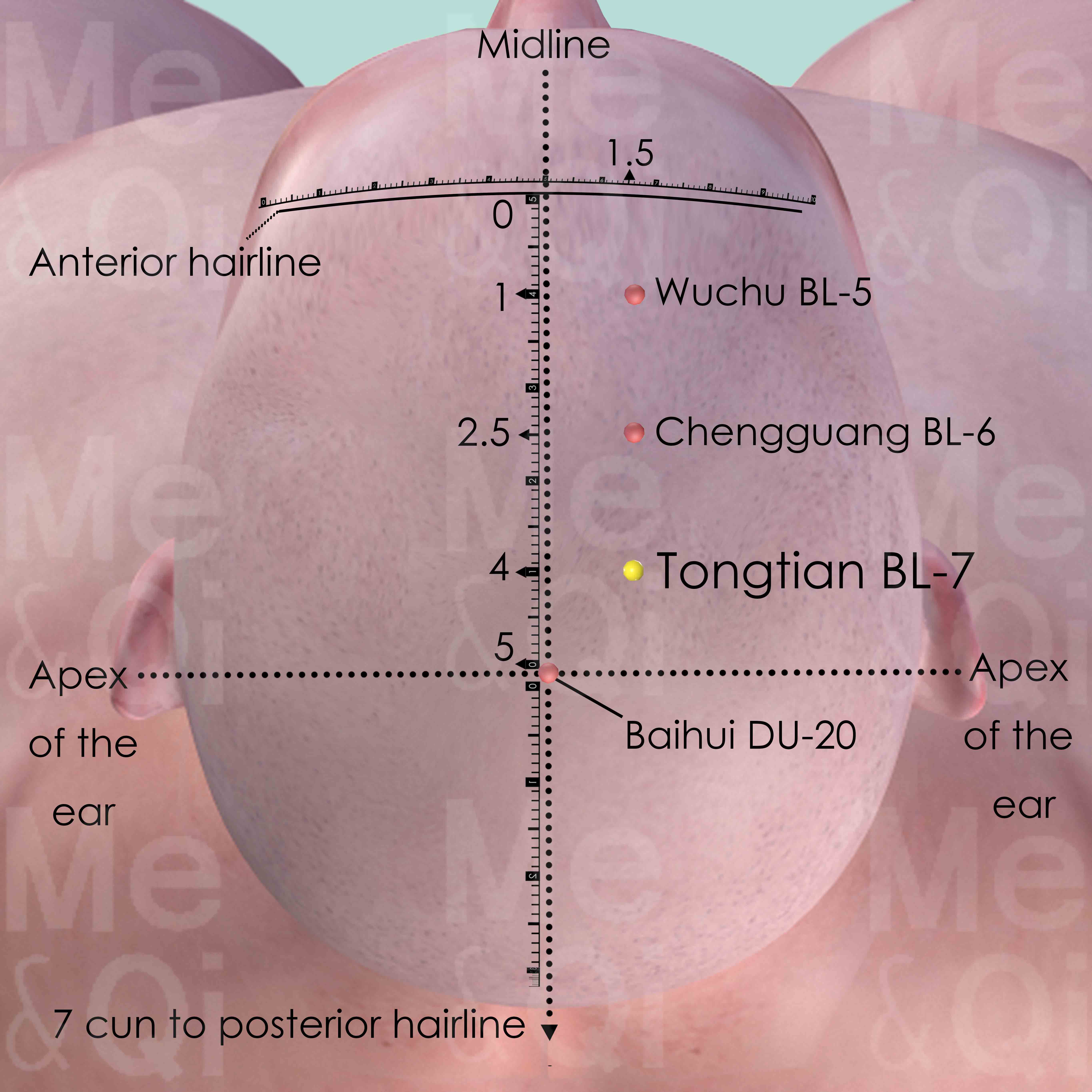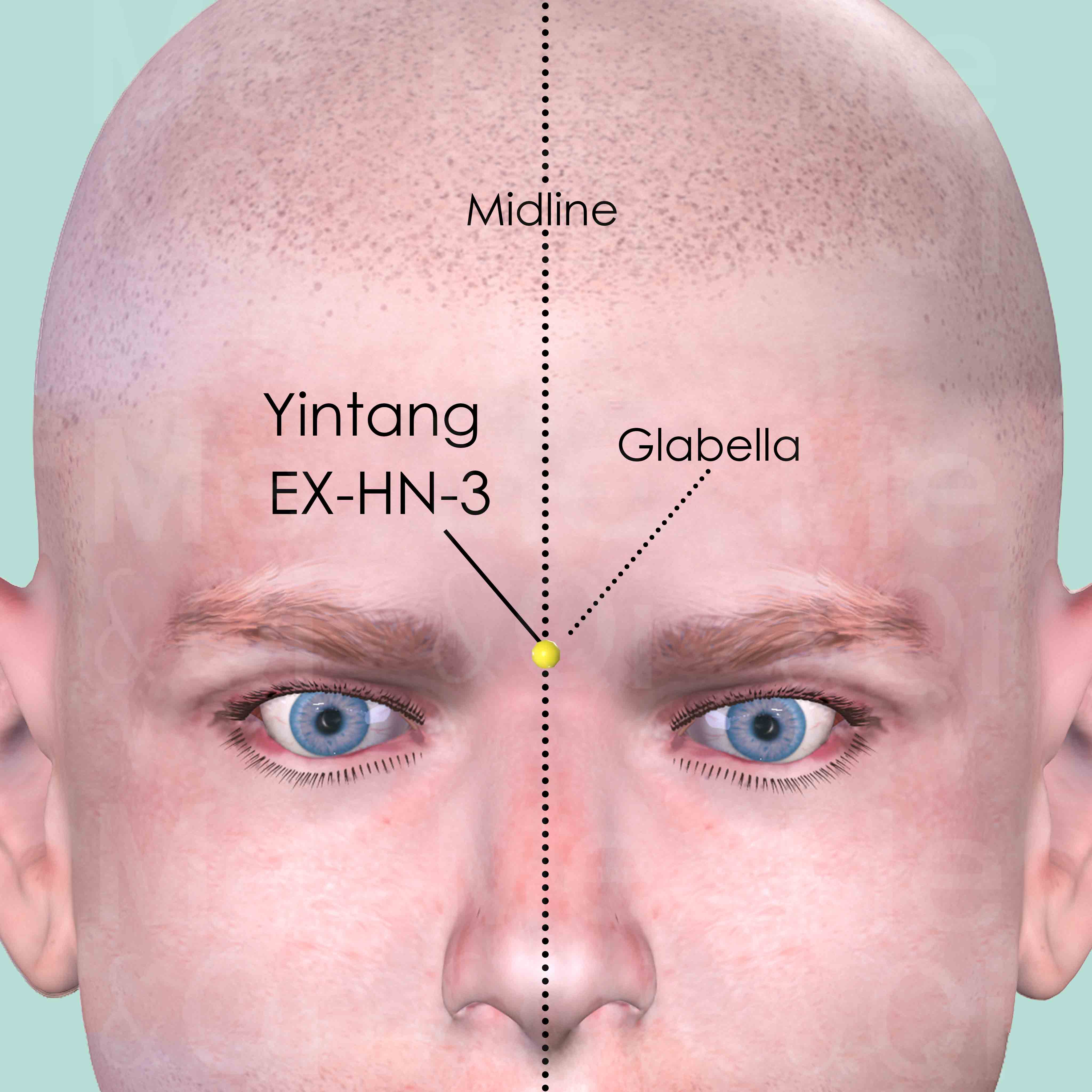Vertigoaccording to TCM
Symptom family: Balance Disorders
Sub-symptom(s): Alcohol-Induced Vertigo Ear-related Vertigo Benign Paroxysmal Positional Vertigo
What is Vertigo?
Vertigo is a medical condition characterized by a false sensation of movement or spinning. Individuals with vertigo often feel as if they or their surroundings are in motion when there is no actual movement, leading to a significant imbalance.
This disconcerting feeling is not merely dizziness; it's a distinct sensation of rotation, often accompanied by nausea and difficulty standing or walking. Sub-symptoms like Alcohol-Induced Vertigo and Benign Paroxysmal Positional Vertigo are specific instances under the vertigo umbrella, each with triggers and characteristics that differentiate them from general dizziness.
How does TCM view Vertigo?
Traditional Chinese Medicine (TCM) perceives vertigo not as a single symptom but as a sign of imbalance within the body's systems. TCM identifies the root patterns causing vertigo, which may stem from internal disharmonies such as Yin Deficiency or Phlegm obstruction.
The focus is on restoring balance by addressing these underlying patterns, which is why recognizing the specific disharmony is crucial before any treatment begins.
Root Causes of Vertigo in TCM
In TCM, the causes of vertigo are often linked to internal imbalances. Patterns such as Phlegm obstructing the Middle Burner or a Deficiency in Qi and Blood can manifest as vertigo. For instance, Phlegm accumulation leads to a muddled head and dizziness, while a lack of nourishment to the head from Qi and Blood Deficiency results in a light-headed sensation.
These patterns are meticulously evaluated in TCM, guiding practitioners to select the most appropriate herbs and formulas to treat the individual manifestations of vertigo.
Explore below more details about what might cause Vertigo according to TCM.
- By Syndrome
- By Organ
- Phlegm
- Blood Deficiency
- Yin Deficiency
- Wind
- Qi Deficiency
- Yang Excess
- Qi Stagnation
- Dampness
- Heat
- View More Causes
- Liver
- Kidney
- Triple Burner
- Spleen
- Uterus
- Gallbladder
- Stomach
- View More Organs
Phlegm
In TCM "Phlegm" as a pattern of disharmony is a complex concept that extends beyond the physical manifestation of mucus. It represents a pathological factor that can disrupt the flow of Qi (vital energy) and blood, leading to various health issues. Phlegm in TCM is seen as a sticky, turbid substance arising from the body's inability to metabolize fluids properly, often due to a dysfunction of the spleen. It's not only associated with respiratory problems like cough and congestion but also with systemic issues. Symptoms can include a feeling of heaviness, mental cloudiness, dizziness, and in some cases, the formation of lumps or masses. Phlegm can even be "invisible," contributing to emotional disturbances like depression or stress. ... see more
Phlegm Patterns That Can Lead to Vertigo
Common Symptoms: Pericardial Effusion Shortness Of Breath Feeling Of Oppression Of The Chest Dizziness Edema Viral Conjunctivitis Depression Hypertension
| Pattern Name | Relevant Symptoms | Relevant Formulas |
|---|---|---|
| Phlegm | Vertigo, Feeling of oppression of the chest, Head fog, Dizziness | Ling Gui Zhu Gan Tang | Xiao Ban Xia Tang |
| Wind-Phlegm | Dizziness or vertigo, Dizziness, Feeling of oppression of the chest, Aphasia, Coughing and wheezing with copious sputum, Noisy breathing, Limb numbness... see more | Ban Xia Bai Zhu Tian Ma Tang |
| Damp-Phlegm in the Uterus | Dizziness or vertigo, Late menstruation, Amenorrhea, Scanty menstruation, Lower abdominal pain, Abdominal heaviness, Feeling of oppression of the chest, Generalized fatigue, Diarrhea, Dull pale complexion, Obesity, Infertility, Ovarian cysts, Ovarian fibroids, Polycystic ovary syndrome, Pseudocyesis, Sputum, Feeling of heaviness... see more | Xiong Gui Er Chen Tang | Xiang Sha Liu Jun Zi Tang |
| Phlegm-Fluids in the hypochondrium | Dizziness or vertigo, Hypochondrial pain that is worse on coughing and breathing, Shortness of breath, Hypochondriac distention... see more | Ling Gui Zhu Gan Tang |
| Phlegm-Fluids in the chest and hypochondrium | Vertigo, Cough with chest pain, Upper abdominal focal distention, Dry heaving, Shortness of breath, Headaches, Pericardial effusion, Pneumonia, Ascites due to liver cirrhosis, Nephritis... see more | Shi Zao Tang |
| Phlegm in the Lower Burner | Vertigo, Throbbing below the belly button, Vomiting frothy saliva, Shortness of breath, Coughing, Edema, Glomerulonephritis, Kidney infection, Nephrotic syndrome, Cystitis, Hydrocele... see more | Wu Ling San |
| Qi Stagnation in Gallbladder and Stomach with Phlegm Heat | Dizziness or vertigo, Nausea or vomiting, Vertigo, Vivid dreaming, Palpitations, Anxiety, Excessive hunger, Focal distention of the chest, Bitter taste in the mouth, Slight thirst, Copious thick yellow sputum... see more | Wen Dan Tang |
Blood Deficiency
Blood Deficiency in TCM is like when your body's tank runs low on the vital energy that blood provides. It's not exactly the same as anemia in modern medicine, which is about having too few red blood cells. Instead, Blood Deficiency in TCM is about your body not having enough of the life-giving qualities that blood brings, like nourishment and moisture. This can make you feel tired, look pale, and even feel dizzy or have blurry vision. It's like a garden not getting enough water to stay lush and vibrant. TCM sees this as an imbalance where the body isn't being nourished as it should be, impacting overall health and well-being.... see more
Blood Deficiency Patterns That Can Lead to Vertigo
Common Symptoms: Dizziness Lack Of Appetite Anemia Hepatitis General Weakness Generalized Fatigue Weak Voice Pale Face
| Pattern Name | Relevant Symptoms | Relevant Formulas |
|---|---|---|
| Qi and Blood Deficiency | Vertigo, General weakness, Generalized fatigue, Weak voice, Pale face, Shortness of breath, Palpitations, Dizziness, Poor memory, Insomnia, Reluctance to speak, Lack of appetite, Limb numbness, Skin numbness... see more | Ba Zhen Tang |
| Blood Deficiency with disharmony of Liver and Spleen | Vertigo, Chest distension, Chest pain, Anemia, Dizziness, Headaches, Dry mouth, Dry throat, Lack of appetite, Irregular periods, Leukorrhea... see more | Xiao Yao San |
Yin Deficiency
Yin deficiency in TCM is a pattern of disharmony characterized by a depletion of the body's Yin energy, which represents the cooling, moistening, and nurturing aspects of our physiology. This condition often arises from factors like chronic stress, overwork, insufficient rest, or prolonged illness. Symptoms of Yin deficiency can include a sensation of heat, especially in the afternoon or evening, night sweats, insomnia, a dry mouth or throat, and a red tongue with little coating. There might also be a general feeling of restlessness or irritability. Since Yin is essential for balancing the body's active and warm Yang energy, its deficiency leads to a relative excess of Yang, manifesting as heat or dryness symptoms.... see more
Yin Deficiency Patterns That Can Lead to Vertigo
Common Symptoms: Back Pain Hearing Loss Lower Back Pain Infertility Generalized Fatigue Menopausal Hot Flashes Tinnitus Dizziness
| Pattern Name | Relevant Symptoms | Relevant Formulas |
|---|---|---|
| Kidney Yin Deficiency | Vertigo, Perspiration, Back pain, Hearing loss, Dry mouth and throat at night, Lower back pain, Constipation, Scanty and dark urine, Infertility, Premature ejaculation, Generalized fatigue, General weakness, Depression, Anxiety, Heat sensation in palms, Evening heat sensation, Flushed cheekbones, Menopausal hot flashes, Preference for sipping, Evening anxiety... see more | Liu Wei Di Huang Wan | Zuo Gui Wan | Zhi Bo Di Huang Wan | Bai Zi Yang Xin Tang 2 | Qi Bao Mei Ran Dan |
| Kidney and Liver Yin Deficiency | Vertigo, Dizziness, Tinnitus, Hearing loss, Lower back pain, Vertical headaches, Occipital headache, Insomnia, Limb numbness, Tingling of limbs, Dry eyes, Blurry vision, Dry throat, Dry hair, Skin dryness, Withered and brittle nails, Vaginal dryness, Night sweats, Dry stools, Nocturnal emission, Scanty menstruation, Amenorrhea, Late menstruation, Infertility... see more | Liu Wei Di Huang Wan | Ming Mu Di Huang Wan |
Wind
In TCM "Wind" is a concept that represents a pattern of disharmony, often characterized by its sudden and unpredictable nature, much like a gusty wind changing direction without warning. This pattern is associated with symptoms that come and go quickly or move around the body, such as itching, tremors, or even certain types of pain. Wind is considered to be a primary cause of illnesses that have these rapidly changing characteristics. In TCM, external Wind often refers to illnesses that start suddenly, like the common cold, believed to be caused by external pathogenic factors like climatic changes. On the other hand, internal Wind can be linked to internal imbalances and can manifest in conditions like dizziness or spasms. ... see more
Wind Patterns That Can Lead to Vertigo
Common Symptoms: Headaches Hypertension Limb Numbness Dizziness Aphasia Tremors Facial Tic Severe Dizziness
| Pattern Name | Relevant Symptoms | Relevant Formulas |
|---|---|---|
| Liver Wind agitating Internally due to Liver Yang Rising | Vertigo, Tremors, Facial tic, Severe dizziness, Tinnitus, Headaches, Hypertension, Dry throat, Dry eyes, Blurry vision, Limb numbness, Tingling of limbs, Poor memory, Back pain, Oliguria, Night sweats... see more | Tian Ma Gou Teng Yin |
| Wind-Phlegm | Dizziness or vertigo, Dizziness, Feeling of oppression of the chest, Aphasia, Coughing and wheezing with copious sputum, Noisy breathing, Limb numbness... see more | Ban Xia Bai Zhu Tian Ma Tang |
Qi Deficiency
Qi Deficiency in TCM is like running low on battery power. Qi is the vital energy that powers every function in your body. When there's a Qi Deficiency, it means your body doesn't have enough of this essential energy. This can make you feel tired all the time, weak, or even cause shortness of breath. It's similar to how you feel when you haven't had enough sleep or nutritious food. Your body just doesn't have the energy it needs to perform at its best. Unlike modern medicine, which often focuses on specific physical causes for fatigue and weakness, TCM views Qi Deficiency as an overall energy depletion that affects your entire well-being, and it seeks to replenish and balance this vital energy.... see more
Qi Deficiency Patterns That Can Lead to Vertigo
| Pattern Name | Relevant Symptoms | Relevant Formulas |
|---|---|---|
| Qi and Blood Deficiency | Vertigo, General weakness, Generalized fatigue, Weak voice, Pale face, Shortness of breath, Palpitations, Dizziness, Poor memory, Insomnia, Reluctance to speak, Lack of appetite, Limb numbness, Skin numbness... see more | Ba Zhen Tang |
Yang Excess
Yang Excess in TCM refers to a state where there is an overabundance of Yang energy, leading to symptoms of heat and hyperactivity in the body. This pattern of disharmony often arises from factors like stress, excessive physical activity, overconsumption of spicy or heating foods, or an internal imbalance that causes Yang to flare up. Symptoms of Yang Excess include a feeling of heat, red face, irritability, restlessness, thirst, constipation, and a rapid, forceful pulse. Treatment in TCM for Yang Excess aims to cool down and subdue the excessive Yang while nurturing Yin energy to restore balance.... see more
Yang Excess Patterns That Can Lead to Vertigo
| Pattern Name | Relevant Symptoms | Relevant Formulas |
|---|---|---|
| Liver Wind agitating Internally due to Liver Yang Rising | Vertigo, Tremors, Facial tic, Severe dizziness, Tinnitus, Headaches, Hypertension, Dry throat, Dry eyes, Blurry vision, Limb numbness, Tingling of limbs, Poor memory, Back pain, Oliguria, Night sweats... see more | Tian Ma Gou Teng Yin |
Qi Stagnation
Qi Stagnation in TCM is like having a traffic jam in your body's energy system. Qi, the vital life force that flows through your body, is supposed to move smoothly to maintain health and balance. But with Qi Stagnation, this flow gets blocked or slowed down, like cars stuck on a highway. This can lead to symptoms like feeling stressed, emotional mood swings, and physical discomfort, often described as a feeling of fullness or tightness, especially in the chest or abdomen. It's as though the body's internal energy circulation is disrupted, causing various issues. TCM sees this as an energy flow problem, different from modern medicine's focus on specific physiological processes.... see more
Qi Stagnation Patterns That Can Lead to Vertigo
| Pattern Name | Relevant Symptoms | Relevant Formulas |
|---|---|---|
| Qi Stagnation in Gallbladder and Stomach with Phlegm Heat | Dizziness or vertigo, Nausea or vomiting, Vertigo, Vivid dreaming, Palpitations, Anxiety, Excessive hunger, Focal distention of the chest, Bitter taste in the mouth, Slight thirst, Copious thick yellow sputum... see more | Wen Dan Tang |
Dampness
"Dampness" in TCM is a concept that describes a pattern of disharmony where the body accumulates excess moisture. Imagine the heavy, sticky feeling you get on a very humid day; that's similar to what dampness feels like internally. It can manifest as a sense of heaviness, bloating, sluggishness, or even a foggy mind. This condition is often thought to arise from environmental factors like living in a damp place, dietary habits that promote moisture in the body, or internal imbalances that hinder the body's ability to process fluids properly. In TCM, dampness can obstruct the normal flow of energy and fluids in the body, leading to various symptoms.... see more
Dampness Patterns That Can Lead to Vertigo
| Pattern Name | Relevant Symptoms | Relevant Formulas |
|---|---|---|
| Damp-Phlegm in the Uterus | Dizziness or vertigo, Late menstruation, Amenorrhea, Scanty menstruation, Lower abdominal pain, Abdominal heaviness, Feeling of oppression of the chest, Generalized fatigue, Diarrhea, Dull pale complexion, Obesity, Infertility, Ovarian cysts, Ovarian fibroids, Polycystic ovary syndrome, Pseudocyesis, Sputum, Feeling of heaviness... see more | Xiong Gui Er Chen Tang | Xiang Sha Liu Jun Zi Tang |
Heat
In TCM "Heat" signifies an excess of Yang energy, leading to an imbalance where heat predominates over the body's cool Yin aspects. This condition is metaphorically akin to an internal over-heating. Symptoms indicative of Heat can include feelings of warmth, fever, sweating, irritability, red face, thirst with a preference for cold drinks, and a rapid pulse. The tongue may appear red with a yellow coating. Unlike the common interpretation of heat in terms of temperature, in TCM, it represents a state of hyperactivity or inflammation in the body.... see more
Heat Patterns That Can Lead to Vertigo
| Pattern Name | Relevant Symptoms | Relevant Formulas |
|---|---|---|
| Qi Stagnation in Gallbladder and Stomach with Phlegm Heat | Dizziness or vertigo, Nausea or vomiting, Vertigo, Vivid dreaming, Palpitations, Anxiety, Excessive hunger, Focal distention of the chest, Bitter taste in the mouth, Slight thirst, Copious thick yellow sputum... see more | Wen Dan Tang |
Liver
In TCM the Liver is viewed as the organ responsible for the smooth flow of Qi, Blood, and emotions throughout the body. It plays a key role in regulating mood, storing blood, supporting digestion, and ensuring the health of tendons and eyes. When the Liver malfunctions or is imbalanced in TCM, it can lead to a range of issues such as irritability, mood swings, menstrual irregularities, eye problems, and muscular stiffness or pain. A malfunctioning Liver in TCM reflects not only physical disturbances but also emotional and mental disharmony, emphasizing the holistic approach of TCM in addressing health and wellness.... see more
Liver Patterns That Can Lead to Vertigo
Common Symptoms: Dizziness Dry Throat Headaches Tinnitus Insomnia Limb Numbness Tingling Of Limbs Dry Eyes
| Pattern Name | Relevant Symptoms | Relevant Formulas |
|---|---|---|
| Kidney and Liver Yin Deficiency | Vertigo, Dizziness, Tinnitus, Hearing loss, Lower back pain, Vertical headaches, Occipital headache, Insomnia, Limb numbness, Tingling of limbs, Dry eyes, Blurry vision, Dry throat, Dry hair, Skin dryness, Withered and brittle nails, Vaginal dryness, Night sweats, Dry stools, Nocturnal emission, Scanty menstruation, Amenorrhea, Late menstruation, Infertility... see more | Liu Wei Di Huang Wan | Ming Mu Di Huang Wan |
| Liver Wind agitating Internally due to Liver Yang Rising | Vertigo, Tremors, Facial tic, Severe dizziness, Tinnitus, Headaches, Hypertension, Dry throat, Dry eyes, Blurry vision, Limb numbness, Tingling of limbs, Poor memory, Back pain, Oliguria, Night sweats... see more | Tian Ma Gou Teng Yin |
| Blood Deficiency with disharmony of Liver and Spleen | Vertigo, Chest distension, Chest pain, Anemia, Dizziness, Headaches, Dry mouth, Dry throat, Lack of appetite, Irregular periods, Leukorrhea... see more | Xiao Yao San |
Kidney
In TCM the Kidneys are regarded as the body's most fundamental reservoir of Essence, known as Jing, which influences growth, reproduction, and aging. They are not just organs for filtering blood, but a holistic system governing vital life forces. When the Kidneys malfunction in TCM, it can manifest as a variety of health issues, such as chronic fatigue, reproductive problems, imbalances in fluid metabolism leading to edema or dryness, lower back pain, and a sense of fear or insecurity.... see more
Kidney Patterns That Can Lead to Vertigo
Common Symptoms: Back Pain Hearing Loss Lower Back Pain Infertility Generalized Fatigue Menopausal Hot Flashes Tinnitus Dizziness
| Pattern Name | Relevant Symptoms | Relevant Formulas |
|---|---|---|
| Kidney Yin Deficiency | Vertigo, Perspiration, Back pain, Hearing loss, Dry mouth and throat at night, Lower back pain, Constipation, Scanty and dark urine, Infertility, Premature ejaculation, Generalized fatigue, General weakness, Depression, Anxiety, Heat sensation in palms, Evening heat sensation, Flushed cheekbones, Menopausal hot flashes, Preference for sipping, Evening anxiety... see more | Liu Wei Di Huang Wan | Zuo Gui Wan | Zhi Bo Di Huang Wan | Bai Zi Yang Xin Tang 2 | Qi Bao Mei Ran Dan |
| Kidney and Liver Yin Deficiency | Vertigo, Dizziness, Tinnitus, Hearing loss, Lower back pain, Vertical headaches, Occipital headache, Insomnia, Limb numbness, Tingling of limbs, Dry eyes, Blurry vision, Dry throat, Dry hair, Skin dryness, Withered and brittle nails, Vaginal dryness, Night sweats, Dry stools, Nocturnal emission, Scanty menstruation, Amenorrhea, Late menstruation, Infertility... see more | Liu Wei Di Huang Wan | Ming Mu Di Huang Wan |
Triple Burner
In TCM the Triple Burner (or San Jiao) is a unique concept rather than a physical organ. It's seen as a system that oversees the flow and balance of Qi and bodily fluids across three regions of the body: the upper (respiratory and cardiovascular systems), middle (digestive system), and lower (urinary and reproductive systems). The Triple Burner facilitates the interaction between these systems, ensuring harmony in bodily functions. When it malfunctions in TCM, it can lead to a variety of symptoms depending on the affected region, such as respiratory issues, digestive problems, or urinary and reproductive disorders. The malfunction can also manifest as general imbalances in energy flow, temperature regulation, and fluid metabolism, reflecting the Triple Burner's role as a coordinator of the body's various processes and its importance in maintaining overall balance and health.... see more
Triple Burner Patterns That Can Lead to Vertigo
| Pattern Name | Relevant Symptoms | Relevant Formulas |
|---|---|---|
| Phlegm in the Lower Burner | Vertigo, Throbbing below the belly button, Vomiting frothy saliva, Shortness of breath, Coughing, Edema, Glomerulonephritis, Kidney infection, Nephrotic syndrome, Cystitis, Hydrocele... see more | Wu Ling San |
Spleen
In TCM the Spleen plays a vital role in digestion and transformation, converting food into energy and nutrients, and overseeing the distribution of Qi and Blood. It's also crucial in maintaining the health of muscles and limbs and ensuring the blood remains within the vessels. When the Spleen malfunctions in TCM, it can lead to a variety of issues such as digestive disorders, fatigue, weak muscles, bloating, and a feeling of heaviness. It can also cause a pale complexion, poor appetite, and a tendency to bruise easily. Emotionally, a Spleen imbalance is often associated with excessive worry or overthinking, reflecting its role in the interplay between physical and mental health.... see more
Spleen Patterns That Can Lead to Vertigo
| Pattern Name | Relevant Symptoms | Relevant Formulas |
|---|---|---|
| Blood Deficiency with disharmony of Liver and Spleen | Vertigo, Chest distension, Chest pain, Anemia, Dizziness, Headaches, Dry mouth, Dry throat, Lack of appetite, Irregular periods, Leukorrhea... see more | Xiao Yao San |
Uterus
In TCM the Uterus (or "Bao Gong") is not just a reproductive organ but a vital system closely linked to Kidney energy, responsible for menstrual health, fertility, and pregnancy. It's also connected to the Heart and Liver, reflecting the importance of emotional and blood health in reproductive wellness. In TCM, the Uterus is seen as a reservoir of Blood and Qi, crucial for reproductive health and general vitality. When the Uterus malfunctions or is imbalanced, it can lead to menstrual irregularities, infertility, miscarriages, or menopausal symptoms. Additionally, there might be symptoms like lower abdominal pain or emotional disturbances such as mood swings, often linked to Liver Qi stagnation. These manifestations highlight the TCM perspective that the health of the Uterus is intertwined with the overall balance of energy and blood in the body, as well as emotional well-being.... see more
Uterus Patterns That Can Lead to Vertigo
| Pattern Name | Relevant Symptoms | Relevant Formulas |
|---|---|---|
| Damp-Phlegm in the Uterus | Dizziness or vertigo, Late menstruation, Amenorrhea, Scanty menstruation, Lower abdominal pain, Abdominal heaviness, Feeling of oppression of the chest, Generalized fatigue, Diarrhea, Dull pale complexion, Obesity, Infertility, Ovarian cysts, Ovarian fibroids, Polycystic ovary syndrome, Pseudocyesis, Sputum, Feeling of heaviness... see more | Xiong Gui Er Chen Tang | Xiang Sha Liu Jun Zi Tang |
Gallbladder
In TCM the Gallbladder has a unique role in storing and excreting bile, but more importantly, it's seen as crucial for decision-making and courage. It's closely connected to the Liver, assisting in the smooth flow of Qi (vital energy) and supporting the Liver's role in maintaining emotional balance. When the Gallbladder malfunctions or is imbalanced in TCM, it can lead to physical symptoms like gallstones, jaundice, or a bitter taste in the mouth. There might also be digestive disturbances, particularly related to fat metabolism. On an emotional level, a Gallbladder disorder can manifest as indecisiveness, timidity, or a tendency to easily succumb to stress. These symptoms highlight the TCM view of the Gallbladder as integral to both physical processes and emotional resilience.... see more
Gallbladder Patterns That Can Lead to Vertigo
| Pattern Name | Relevant Symptoms | Relevant Formulas |
|---|---|---|
| Qi Stagnation in Gallbladder and Stomach with Phlegm Heat | Dizziness or vertigo, Nausea or vomiting, Vertigo, Vivid dreaming, Palpitations, Anxiety, Excessive hunger, Focal distention of the chest, Bitter taste in the mouth, Slight thirst, Copious thick yellow sputum... see more | Wen Dan Tang |
Stomach
In TCM the Stomach is regarded as the "sea of nourishment," pivotal for digesting food and transforming it into Qi and blood. It works closely with the Spleen to distribute these essential nutrients throughout the body. When the Stomach is out of balance or malfunctions in TCM, it often leads to digestive problems such as bloating, nausea, vomiting, poor appetite, or a feeling of fullness. There may also be issues like acid reflux or a sour taste in the mouth. Emotionally, an imbalanced Stomach can contribute to excessive worry and overthinking, reflecting the TCM belief that physical and emotional well-being are deeply interconnected.... see more
Stomach Patterns That Can Lead to Vertigo
| Pattern Name | Relevant Symptoms | Relevant Formulas |
|---|---|---|
| Qi Stagnation in Gallbladder and Stomach with Phlegm Heat | Dizziness or vertigo, Nausea or vomiting, Vertigo, Vivid dreaming, Palpitations, Anxiety, Excessive hunger, Focal distention of the chest, Bitter taste in the mouth, Slight thirst, Copious thick yellow sputum... see more | Wen Dan Tang |
TCM Herbal Formulas for Vertigo
In the treatment of vertigo, TCM recommends various formulas based on the identified patterns. For Phlegm-related dizziness, formulas like Ling Gui Zhu Gan Tang, with Poria-Cocos Mushrooms, can be used to warm and transform water and Dampness, addressing the root of the problem.
When vertigo is due to Blood Deficiency, herbs that tonify Qi and Blood, such as those found in Ba Zhen Tang with Ginseng, are selected to replenish the body's vital substances and alleviate symptoms.
Explore below some TCM herbal formulas used to address vertigo, organized by cause and by formula type.
- By Cause
- By Formula Type
- Phlegm
- Blood Deficiency
- Yin Deficiency
- Wind
- Qi Deficiency
- Yang Excess
- Qi Stagnation
- Dampness
- Heat
- View More Causes
- Formulas that nourish yin and tonify
- Formulas that dry dampness and transform phlegm
- Formulas that tonify qi and blood
- Formulas that clear heat from the organs
- Formulas that nourish the heart and calm the mind
- Formulas that tonify yin and yang
- Formulas that warm and transform water and dampness
- Formulas for a rebellious qi
- Formulas that drive out excess water
- Formulas that pacify and extinguish internal wind
- Formulas that promote urination and leach out dampness
- Formulas that moisten intestines and unblock bowels
- Formulas that harmonize liver-Spleen
- Formulas that transform phlegm and extinguish wind
- Formulas that dispel phlegm
- Formulas that sedate and calm the mind
- Formulas that harmonize lesser yang-warp disorders
Top Formula for Phlegm:
Ling Gui Zhu Gan Tang
Suitable for Phlegm patterns that may cause vertigo, such as Phlegm or Phlegm-Fluids in the hypochondrium
Learn moreAll Formulas Recommended for Vertigo Caused by Phlegm
| Formula | Patterns Suitable For |
|---|---|
| Ling Gui Zhu Gan Tang | Phlegm, Phlegm-Fluids in the hypochondrium |
| Xiao Ban Xia Tang | Phlegm |
| Shi Zao Tang | Phlegm-Fluids in the chest and hypochondrium |
| Wu Ling San | Phlegm in the Lower Burner |
| Ban Xia Bai Zhu Tian Ma Tang | Wind-Phlegm |
| Xiong Gui Er Chen Tang | Damp-Phlegm in the Uterus |
| Xiang Sha Liu Jun Zi Tang | Damp-Phlegm in the Uterus |
| Wen Dan Tang | Qi Stagnation in Gallbladder and Stomach with Phlegm Heat |
Top Formula for Blood Deficiency:
Ba Zhen Tang
Suitable for Blood Deficiency patterns that may cause vertigo, such as Qi and Blood Deficiency
Learn moreAll Formulas Recommended for Vertigo Caused by Blood Deficiency
| Formula | Patterns Suitable For |
|---|---|
| Ba Zhen Tang | Qi and Blood Deficiency |
| Xiao Yao San | Blood Deficiency with disharmony of Liver and Spleen |
Top Formula for Yin Deficiency:
Liu Wei Di Huang Wan
Suitable for Yin Deficiency patterns that may cause vertigo, such as Kidney Yin Deficiency or Kidney and Liver Yin Deficiency
Learn moreAll Formulas Recommended for Vertigo Caused by Yin Deficiency
| Formula | Patterns Suitable For |
|---|---|
| Liu Wei Di Huang Wan | Kidney Yin Deficiency, Kidney and Liver Yin Deficiency |
| Zuo Gui Wan | Kidney Yin Deficiency |
| Zhi Bo Di Huang Wan | Kidney Yin Deficiency |
| Bai Zi Yang Xin Tang 2 | Kidney Yin Deficiency |
| Qi Bao Mei Ran Dan | Kidney Yin Deficiency |
| Ming Mu Di Huang Wan | Kidney and Liver Yin Deficiency |
Top Formula for Wind:
Tian Ma Gou Teng Yin
Suitable for Wind patterns that may cause vertigo, such as Liver Wind agitating Internally due to Liver Yang Rising
Learn moreAll Formulas Recommended for Vertigo Caused by Wind
| Formula | Patterns Suitable For |
|---|---|
| Tian Ma Gou Teng Yin | Liver Wind agitating Internally due to Liver Yang Rising |
| Ban Xia Bai Zhu Tian Ma Tang | Wind-Phlegm |
Top Formula for Qi Deficiency:
Ba Zhen Tang
Suitable for Qi Deficiency patterns that may cause vertigo, such as Qi and Blood Deficiency
Learn moreTop Formula for Yang Excess:
Tian Ma Gou Teng Yin
Suitable for Yang Excess patterns that may cause vertigo, such as Liver Wind agitating Internally due to Liver Yang Rising
Learn moreTop Formula for Qi Stagnation:
Wen Dan Tang
Suitable for Qi Stagnation patterns that may cause vertigo, such as Qi Stagnation in Gallbladder and Stomach with Phlegm Heat
Learn moreTop Formula for Dampness:
Xiong Gui Er Chen Tang
Suitable for Dampness patterns that may cause vertigo, such as Damp-Phlegm in the Uterus
Learn moreAll Formulas Recommended for Vertigo Caused by Dampness
| Formula | Patterns Suitable For |
|---|---|
| Xiong Gui Er Chen Tang | Damp-Phlegm in the Uterus |
| Xiang Sha Liu Jun Zi Tang | Damp-Phlegm in the Uterus |
Top Formula for Heat:
Wen Dan Tang
Suitable for Heat patterns that may cause vertigo, such as Qi Stagnation in Gallbladder and Stomach with Phlegm Heat
Learn moreFormulas that nourish Yin and tonify
These formulas are suitable for some vertigo-causing patterns like Kidney Yin Deficiency or Kidney and Liver Yin Deficiency.
One such formula is Liu Wei Di Huang Wan, with prepared rehmannia as a key herb.
Other formulas of this category are listed in the table below.
All "formulas that nourish yin and tonify" recommended for vertigo
| Formula | Patterns Suitable For (if applicable) |
|---|---|
| Liu Wei Di Huang Wan | Kidney Yin Deficiency, Kidney and Liver Yin Deficiency |
| Zuo Gui Wan | Kidney Yin Deficiency |
| Zhi Bo Di Huang Wan | Kidney Yin Deficiency |
| Ming Mu Di Huang Wan | Kidney and Liver Yin Deficiency |
Formulas that dry Dampness and transform Phlegm
These formulas are suitable for some vertigo-causing patterns like Damp-Phlegm in the Uterus.
One such formula is Xiong Gui Er Chen Tang, with dong quai as a key herb.
Other formulas of this category are listed in the table below.
All "formulas that dry dampness and transform phlegm" recommended for vertigo
| Formula | Patterns Suitable For (if applicable) |
|---|---|
| Xiong Gui Er Chen Tang | Damp-Phlegm in the Uterus |
| Wen Dan Tang | Qi Stagnation in Gallbladder and Stomach with Phlegm Heat |
Formulas that warm and transform water and Dampness
These formulas are suitable for some vertigo-causing patterns like Phlegm or Phlegm-Fluids in the hypochondrium.
One such formula is Ling Gui Zhu Gan Tang, with poria-cocos mushroom as a key herb.
Formulas that tonify Qi and Blood
These formulas are suitable for some vertigo-causing patterns like Qi and Blood Deficiency.
One such formula is Ba Zhen Tang, with ginseng as a key herb.
Formulas that nourish the Heart and calm the Mind
These formulas are suitable for some vertigo-causing patterns like Kidney Yin Deficiency.
One such formula is Bai Zi Yang Xin Tang 2, with biota seeds as a key herb.
Formulas that tonify Yin and Yang
These formulas are suitable for some vertigo-causing patterns like Kidney Yin Deficiency.
One such formula is Qi Bao Mei Ran Dan, with fleeceflower root as a key herb.
Formulas for a rebellious Qi
These formulas are suitable for some vertigo-causing patterns like Phlegm.
One such formula is Xiao Ban Xia Tang, with crow-dipper rhizome as a key herb.
Formulas that drive out excess water
These formulas are suitable for some vertigo-causing patterns like Phlegm-Fluids in the chest and hypochondrium.
One such formula is Shi Zao Tang, with kansui root as a key herb.
Formulas that pacify and extinguish Internal Wind
These formulas are suitable for some vertigo-causing patterns like Liver Wind agitating Internally due to Liver Yang Rising.
One such formula is Tian Ma Gou Teng Yin, with gastrodia rhizome as a key herb.
Formulas that promote urination and leach out Dampness
These formulas are suitable for some vertigo-causing patterns like Phlegm in the Lower Burner.
One such formula is Wu Ling San, with water plantain as a key herb.
Formulas that harmonize Liver-Spleen
These formulas are suitable for some vertigo-causing patterns like Blood Deficiency with disharmony of Liver and Spleen.
One such formula is Xiao Yao San, with bupleurum root as a key herb.
Formulas that transform Phlegm and extinguish Wind
These formulas are suitable for some vertigo-causing patterns like Wind-Phlegm.
One such formula is Ban Xia Bai Zhu Tian Ma Tang, with crow-dipper rhizome as a key herb.
Formulas that dispel Phlegm
These formulas are suitable for some vertigo-causing patterns like Damp-Phlegm in the Uterus.
One such formula is Xiang Sha Liu Jun Zi Tang, with ginseng as a key herb.
Formulas that clear Heat from the Organs
Vertigo can be treated by these formulas if it stems from an excess heat condition in specific organs, leading to internal disharmony.
One such formula is Dang Gui Long Hui Wan, with dong quai as a key herb.
Formulas that moisten Intestines and unblock bowels
Vertigo can be treated by these formulas if it results from dryness affecting the intestines, leading to constipation or difficulty in bowel movement.
One such formula is Wu Ren Wan, with apricot seed as a key herb.
Formulas that sedate and calm the Mind
Vertigo can be treated by these formulas when it stems from an agitated or disturbed mental state, requiring calming and mind-stabilizing actions.
One such formula is Ci Zhu Wan, with magnetite as a key herb.
Formulas that harmonize lesser Yang-warp disorders
Vertigo can be treated by these formulas in cases of imbalances in the lesser Yang (Shao Yang) phase, which often involve alternating hot and cold sensations.
One such formula is Hao Qin Qing Dan Tang, with sweet wormwood herb as a key herb.
Acupoints for Vertigo
Acupuncture points are carefully chosen to target the specific TCM patterns contributing to vertigo. Points like Fengfu DU-16 and Renzhong DU-26 are utilized to expel internal wind and restore consciousness, which can be beneficial for vertigo arising from internal movement disturbances.
The Gall Bladder Channel point Fengchi GB-20 is another crucial spot for subduing Liver Yang and expelling wind, which are common TCM factors in the experience of vertigo. Each point is selected for its unique ability to harmonize and correct the imbalances that lead to the spinning sensation.
Explore below some acupoints used to address vertigo, organized by meridian.
- By Meridian
- Governing Vessel
- Bladder Channel
- Gall Bladder Channel
- Small Intestine Channel
- Extra Points: Head and Neck (EX-HN)
- Kidney Channel
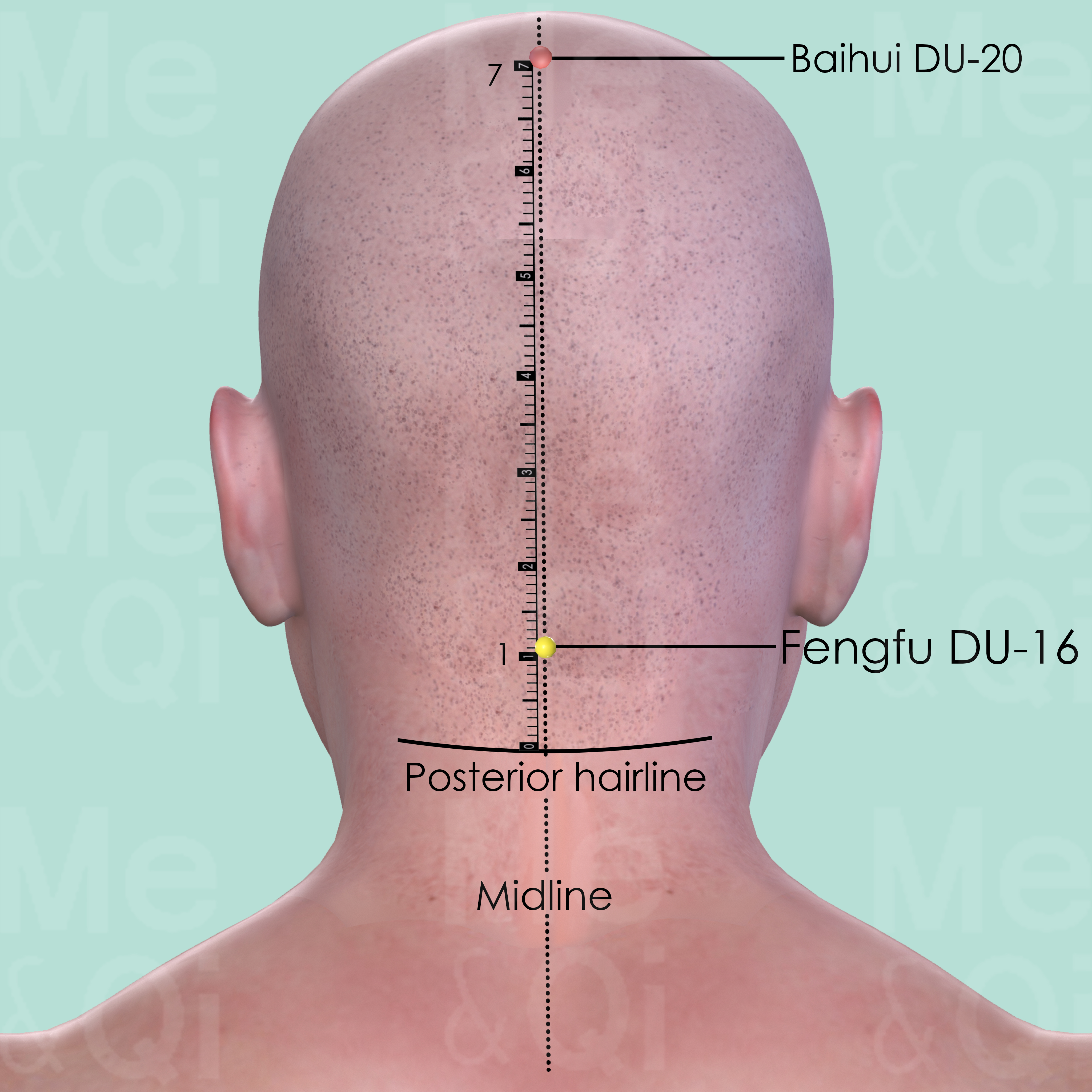
Fengfu DU-16
Directly below the external occipital protuberance, in the depression between the origins of the trapezius muscle.
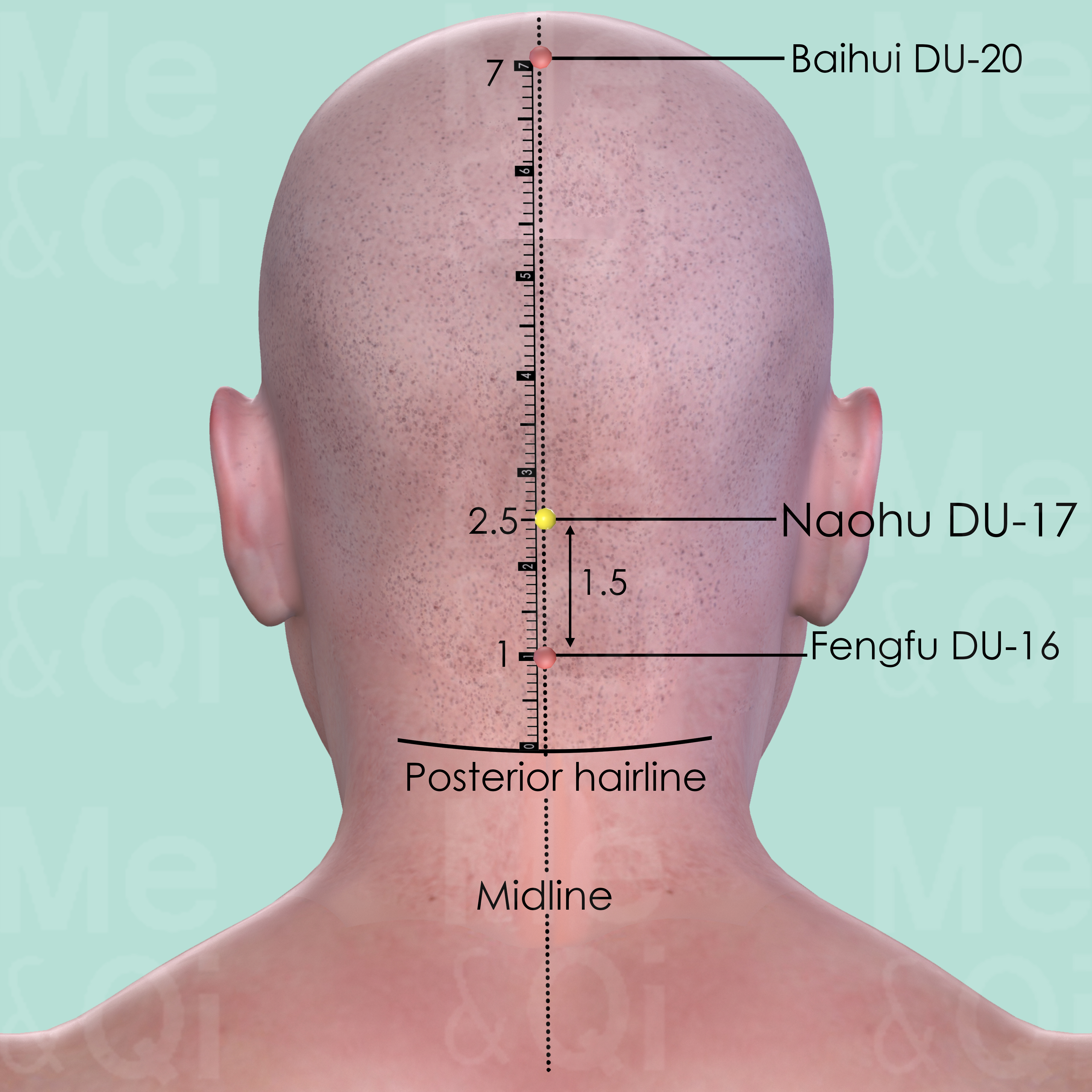
Naohu DU-17
1.5 cun above Fengfu DU-16 or 2.5 cun above the posterior hairline, in a depression superior to the external occipital protuberance.
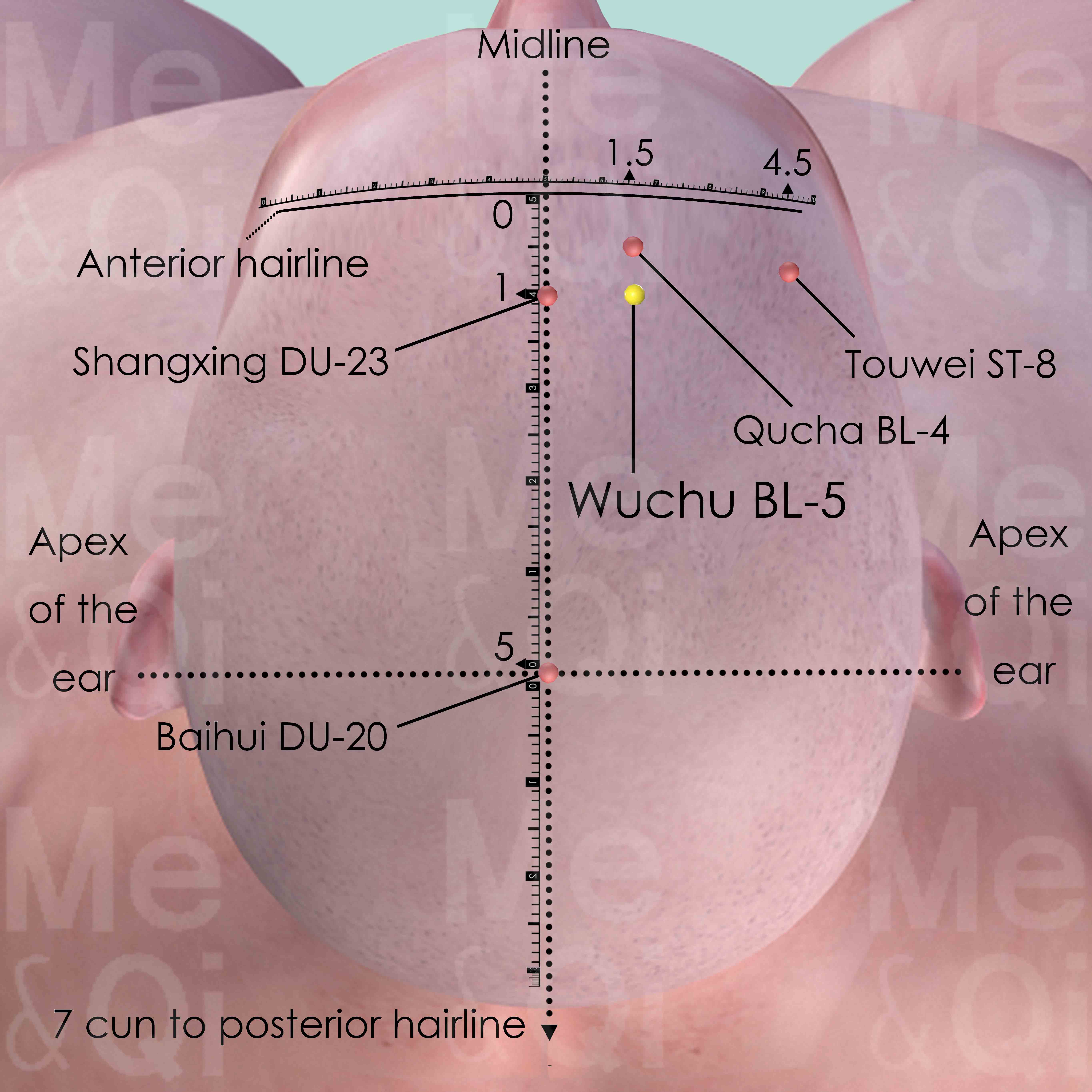
Wuchu BL-5
1 cun within the anterior hairline and 1.5 cun lateral to the anterior midline. It is also 0.5 cun posterior to Quchai BL-4.
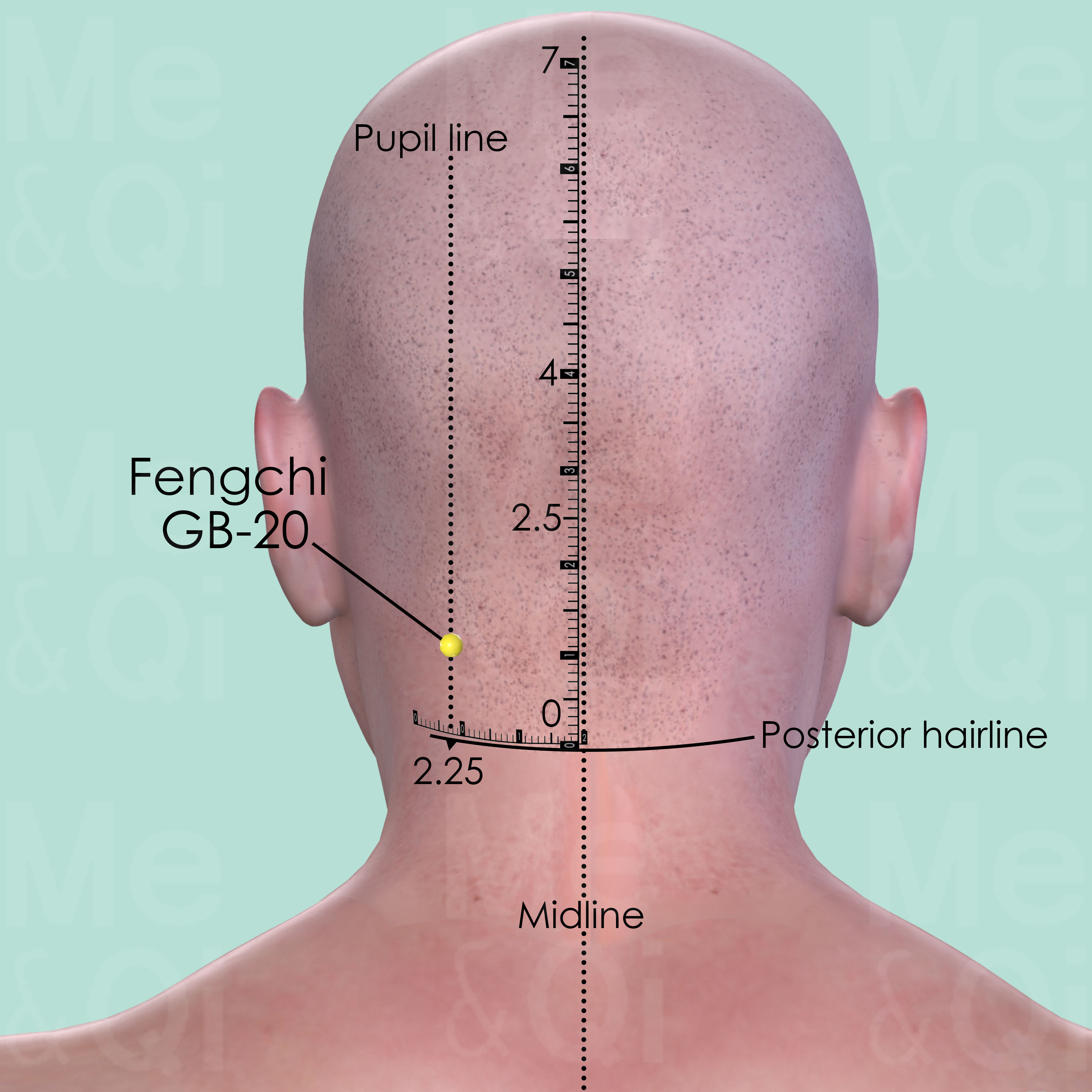
Fengchi GB-20
In the posterior aspect of the neck, below the occipital bone, in the depression between the upper portion of sternocleidomastoid and trapezius muscle.
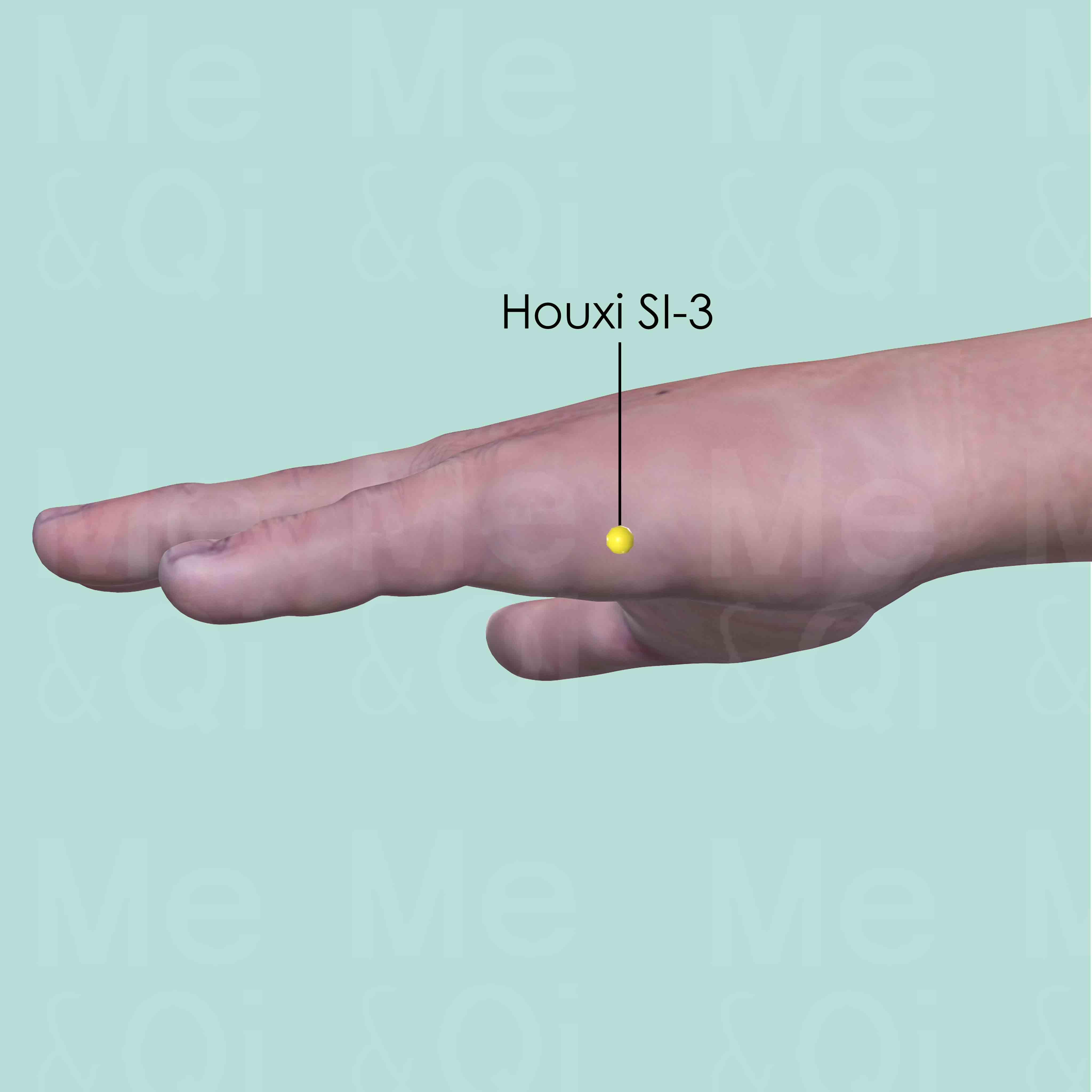
Houxi SI-3
Proximal to the head of the 5th metacarpal bone on the ulnar side, in the depression at the junction of the red and white skin.
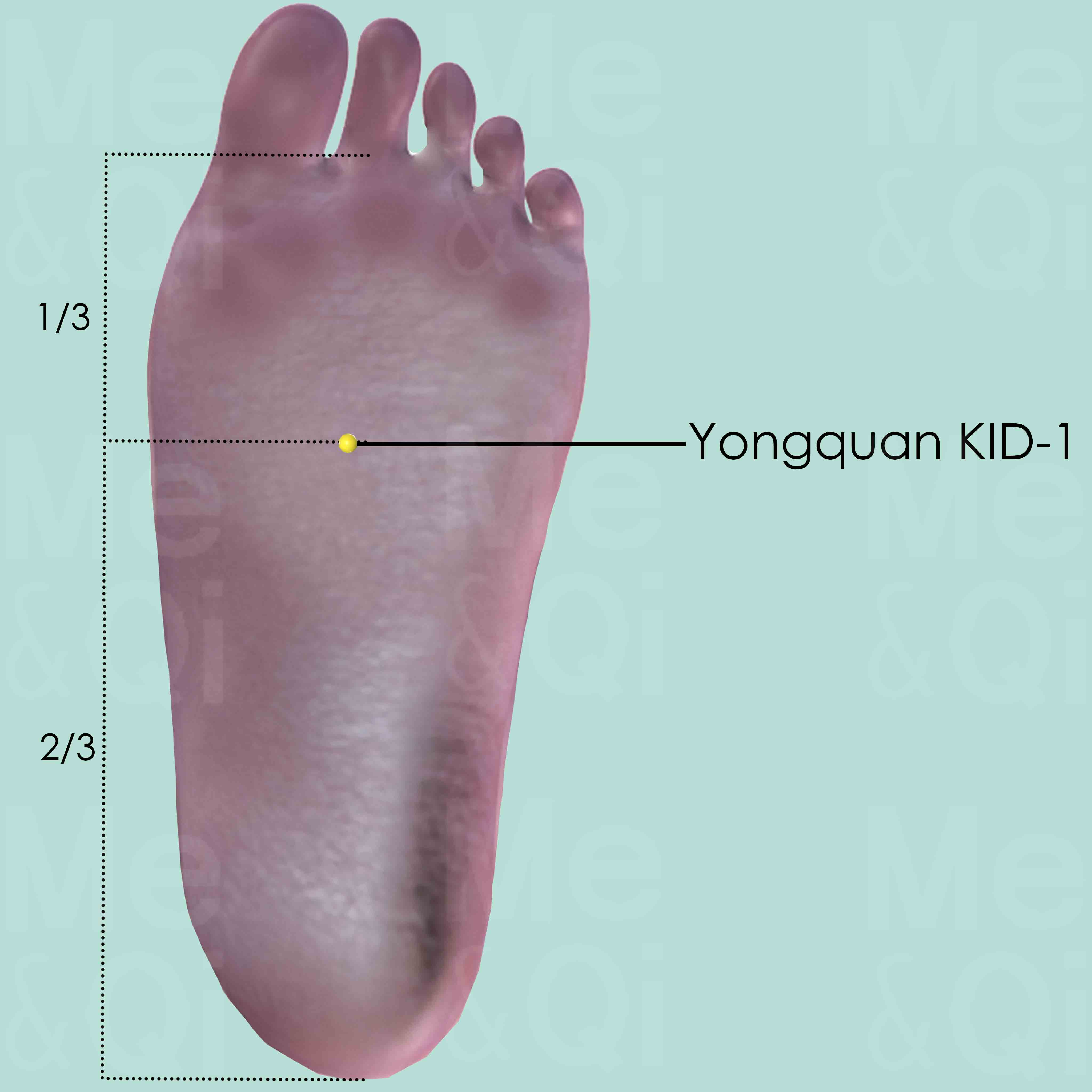
Yongquan KID-1
In the depression between the 2nd and 3rd metatarsal bones on the sole when the foot is in plantar flexion, approximately at the junction of the anterior and middle third of the sole.

